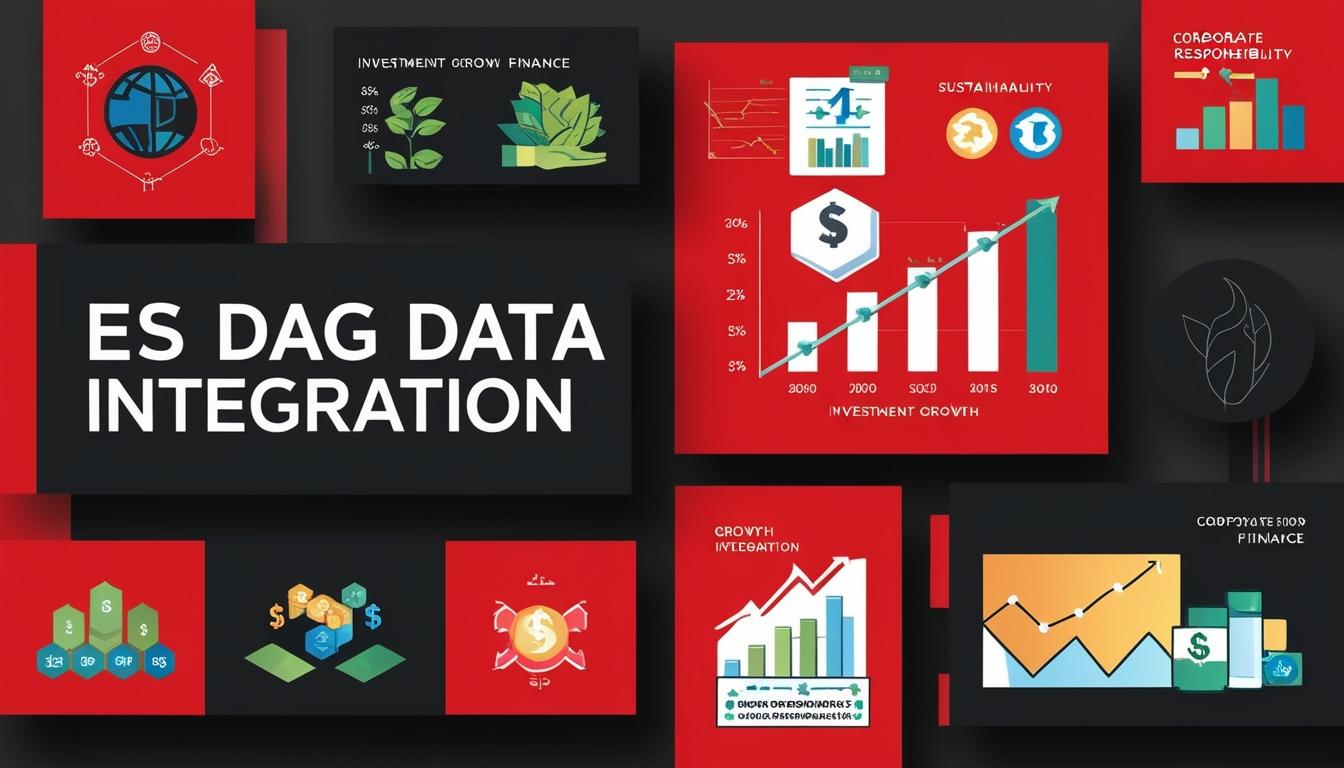The financial services sector is currently experiencing a significant transformation driven by the increasing demand for Environmental, Social, and Governance (ESG) principles among investors. Recent findings indicate that an impressive 78% of investors are willing to pay higher fees for ESG-aligned funds, citing the anticipation of better returns. The trend is particularly pronounced among younger generations; approximately 85% of millennial and Gen Z investors express a preference for utilising their investment portfolios to influence corporate environmental practices, even if it entails accepting certain investment risks.
Despite this burgeoning interest in green investing, challenges persist, primarily surrounding the accuracy of ESG data. Companies are grappling with the risks of stakeholder disconnect that can arise from discrepancies in ESG data accuracy, as well as inconsistent presentations of sustainability products. To meet the growing demands of regulatory standards and internal sustainability objectives, firms require robust and transparent data integration.
Microsoft has positioned itself as a leader in the development of connected ESG data strategies. The technology giant asserts that “Without a systemic view, firms lack holistic insights into equities, loans, or insured assets, leading to a competitive disadvantage.” By establishing an internal ESG data estate, Microsoft informs its external offerings, thereby enabling partners to improve speed-to-market and enhance product credibility. Robeco, a Dutch asset management firm, exemplifies the successful integration of ESG practices by implementing daily updates of ESG data to ensure audit-ready transparency while maintaining a focus on financial returns.
Key priority areas for advancing ESG data development have emerged, which include:
Advanced Data Integration: The necessity to seamlessly incorporate ESG data across portfolios with strong governance structures.
Sustainable Investing and Lending: The application of analytics to strengthen risk assessments at the portfolio level is crucial for informed investment decisions.
Transition Capital Allocation: Supporting client sustainability objectives through data-informed strategies is becoming increasingly relevant.
Carbon Credit Markets: The enhancement of carbon trading systems through reliable tracking and reporting mechanisms is vital in today’s carbon-conscious economy.
Modernised Risk Modelling: The utilisation of artificial intelligence for underwriting, pricing, and evaluating loan assessments represents a forward-thinking approach.
Furthermore, the high-value steps identified for ESG data readiness stress the importance of:
Data Gathering: Standardising processes to collect and regularly update ESG data from both internal and external sources.
Data Modernisation: Leveraging digital tools to advance data governance, compliance, and innovation in financial products.
Data Insights: Implementing AI-driven systems to provide tailored ESG analyses and client training.
Data Action: Identifying discrepancies in data and ensuring accuracy to align decision-making with comprehensive ESG metrics.
Microsoft’s suite of ESG solutions, such as the Microsoft Cloud for Sustainability and AI capabilities through Microsoft Fabric, facilitate a transition from manual, isolated processes to a more integrated approach to ESG management.
Several case studies highlight the effectiveness of these strategies. For instance, Moody’s employs Microsoft Fabric and AI to equip its 14,000 employees with enhanced client insights. Similarly, the London Stock Exchange Group has adopted generative AI and customised copilots to improve the efficiency of its ESG reporting processes.
Microsoft articulates a collaborative approach, stating, “For us to do well, our customers and the world must also do well.” This indicates a commitment to driving business value alongside global impact through continuous innovation and a robust partner ecosystem.
As firms navigate their respective ESG journeys, the implementation of appropriate data solutions is essential to achieving sustainability goals and fostering long-term success in an evolving market landscape.
Source: Noah Wire Services
